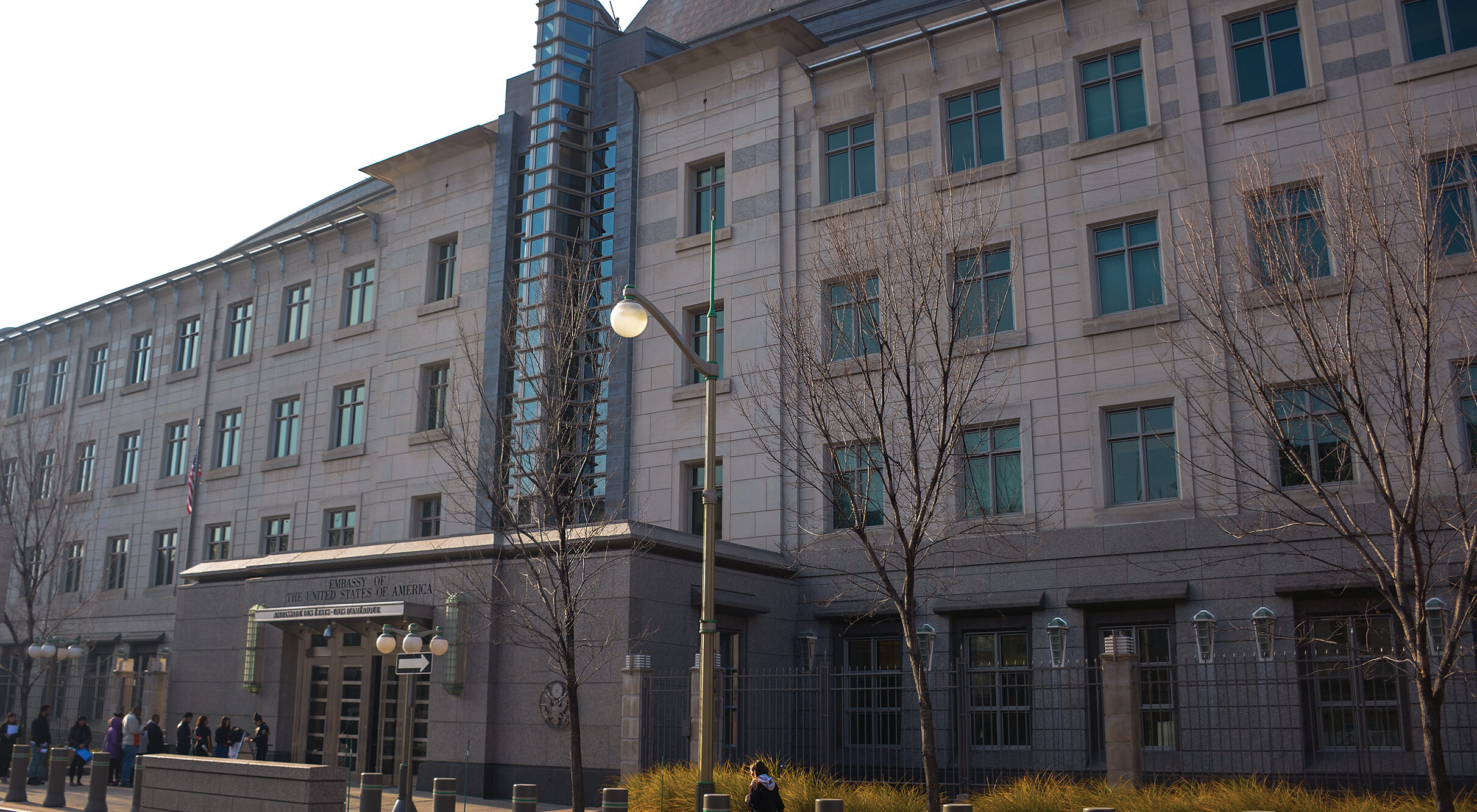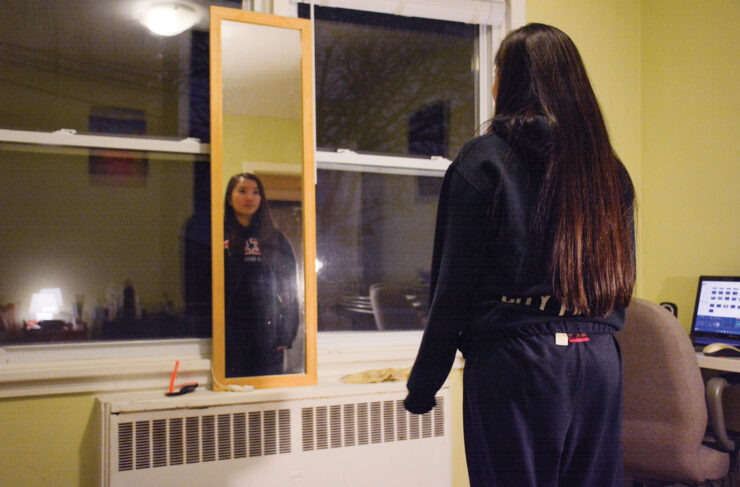First Alex Trebek Forum talk tackles new Trump administration, Canada-U.S. relations
On Nov. 17, the University of Ottawa hosted Bruce Heyman, the United States Ambassador to Canada, for a discussion on Canada-U.S. relations following the Nov. 8 presidential election.
The discussion, which took place in Tabaret Hall, served as a launching pad for the new Alex Trebek Forum for Dialogue, which was developed following a $5 million donation by Trebek himself, who is a U of O alumnus. The forum seeks to “discuss provocative, timely and constructive ideas on issues that matter to Canadians,” according to a media release by the U of O.
Following introductory remarks by one of the event organizers, a video played of Trebek welcoming attendants, saying, “This is the first official event since we launched the forum in May.”
Trebek said the forum will discuss “original ideas and unconventional perspectives,” and that it was especially timely following Trump’s election to discuss the changing relationship between Canada and the U.S., “two countries that have given me all that is good in my life,” he said.
The discussion that followed took the form of a question-and-answer format, first between Heyman and U of O chancellor Calin Rovinescu.
The first item addressed was the shift from President Barack Obama’s administration to the upcoming Donald Trump administration, which will commence on Jan. 20, 2017.
“How does that transition work? What should we expect?” asked Rovinescu.
According to Heyman, this change in government exists in three ways—firstly, the election phase, which ended on Nov. 8, then the current transition phase as Trump prepares for office, and lastly the governing phase, which will begin with Trump’s inauguration.
Heyman highlighted that president Obama will continue working until his last day in office, and said that “It’s completely inappropriate to speculate what are the priorities of the new government.”
The issue of Canada-U.S. relations was also raised, with some asking how the new administration would affect Canada.
Heyman noted that while the U.S. election saw a change in parties, from Democrat to Republican, the 2015 Canadian federal election also saw a change in parties, from Progressive Conservative to Liberal.
“In both elections there was a change in parties … but the relationship is strong. We trade things together, we build things together.”
“We provide our democratic ideas and values … more than all of that, we’re family. We invest in each other’s country,” said Heyman.
The forum then opened to questions from the audience, with one member asking what the election results would mean for democracy.
“I’ve never seen a time when one side won and the other side was okay with it,” said Heyman in response to protests over Trump’s election.
However, Heyman also noted that these protests exhibit the value of free speech in democratic societies. “I have confidence in our system,” he said.
Recent cases of racist and anti-semitic graffiti in Ottawa following Trump’s election were also addressed, with Heyman calling them “painful” and saying that the issue must be tackled “head-on,” through methods such as community dialogue.
Another audience member asked what Trump’s first conversation with Prime Minister Justin Trudeau would be like. While Heyman acknowledged that the two have already spoken, he said, “I only have one recommendation, and that would be to engage.”
Heyman also echoed the importance of world leaders understanding each other and their needs, and finding common ground.
“Americans love Canadians, Americans love Canada,” Heyman later said. “We need to study each other’s countries more.”
Heyman also acknowledged the importance of student voices in this ongoing transitory period, saying, “Students aren’t future leaders, students are leaders.”





